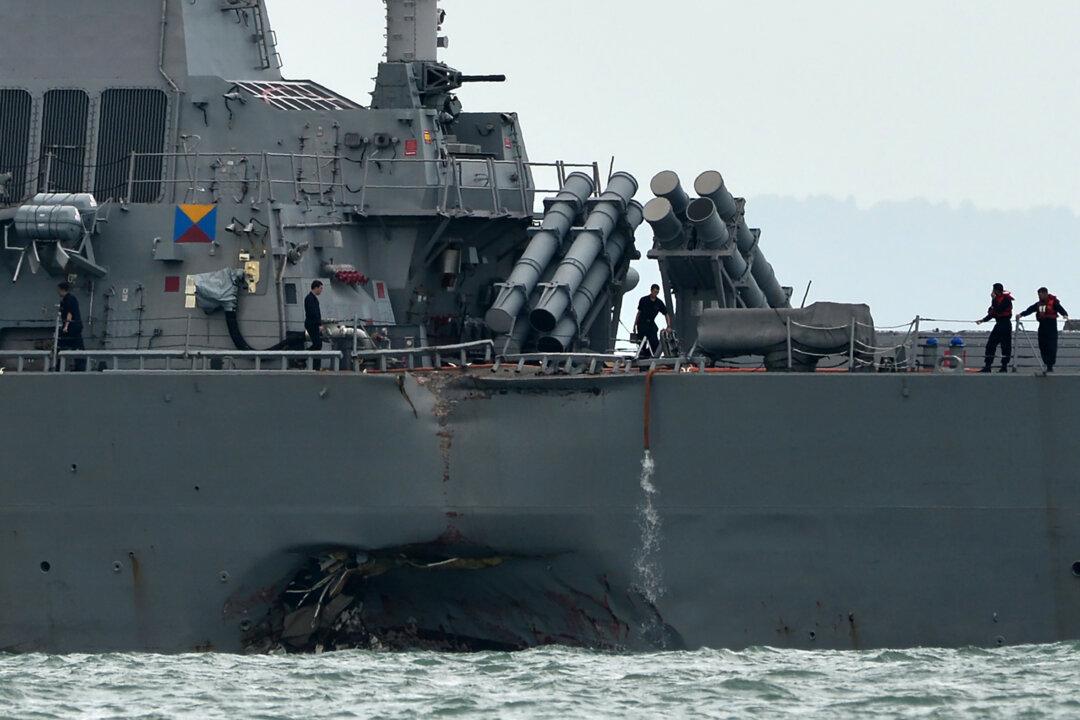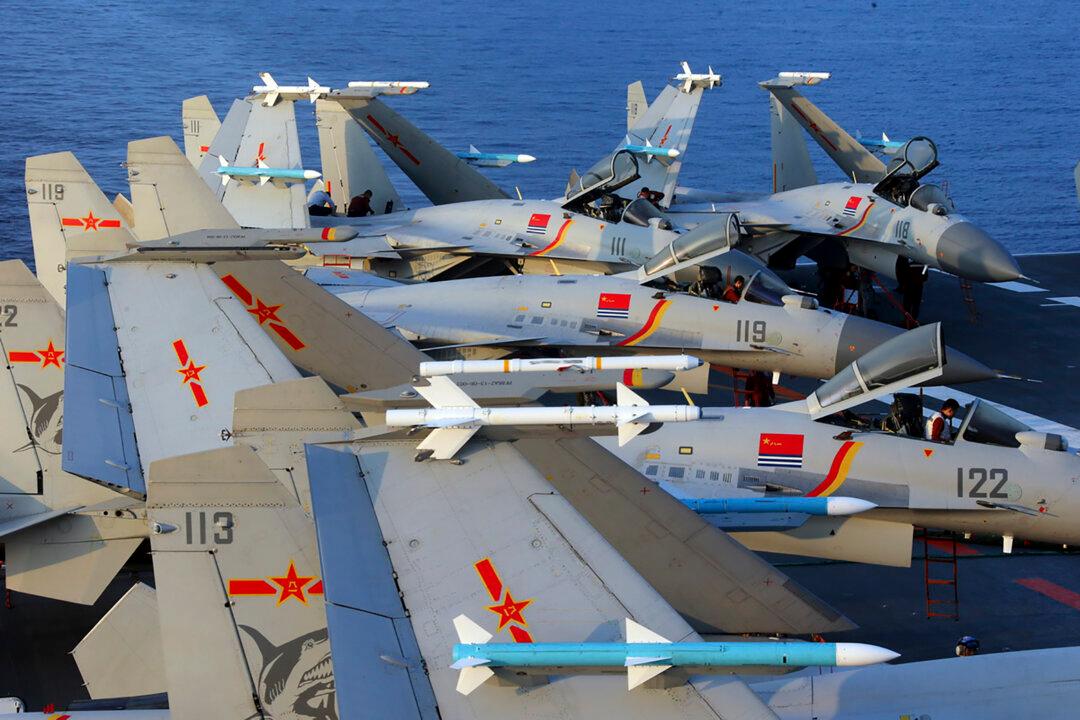Both a Chinese navy admiral and a regime-sanctioned commentator with millions of online followers in China publicly celebrated the collision between a U.S. navy destroyer and a tanker on Aug. 21 that left 10 U.S. sailors dead or missing. The comment is the latest example that at least a portion of the leadership of the Chinese regime and its military harbor hostile intent toward the United States and show no sympathy for even the casualties of a peacetime accident.
The USS John S. McCain, an Arleigh-Burke class destroyer, collided with the Liberian-flagged oil tanker Alnic MC east of Singapore before dawn on Monday, with the destroyer suffering significant damage. The bodies of several of the ten missing sailors are reported to have been found.




